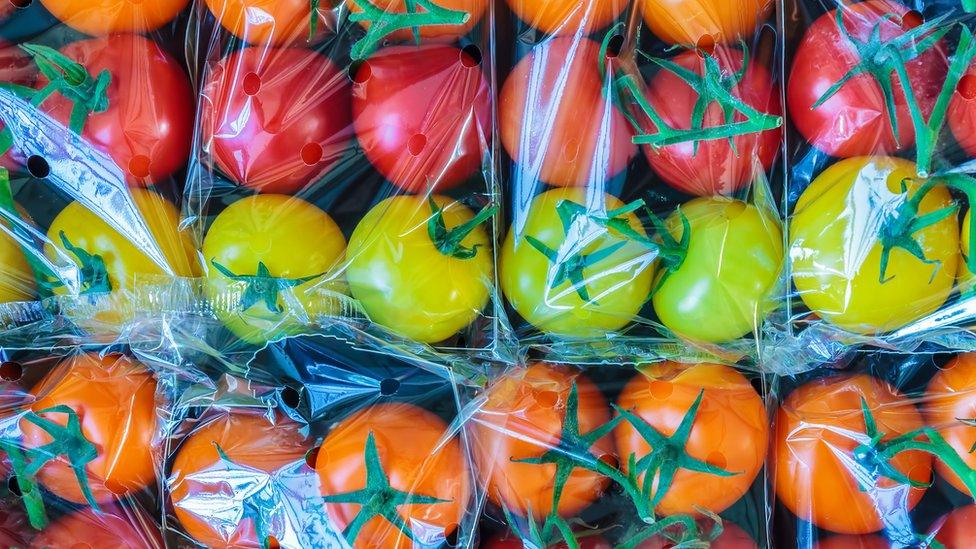Coronavirus: Face masks part of 'new plastic pollution explosion'
- Published
- comments
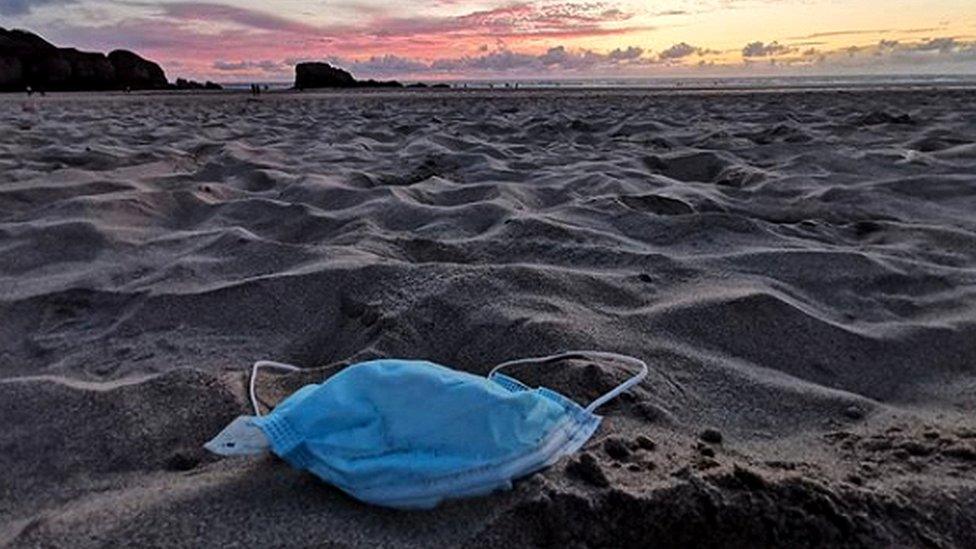
Volunteers say face masks are turning up more and more on beaches
More and more protective equipment is ending up in the sea as the world battles the coronavirus pandemic.
It's estimated that 194 billion disposable face masks and gloves are being used every month worldwide, according to a report in the Environmental Science and Technology journal.
And divers and observers are spotting more of this discarded waste floating underwater, causing problems for wildlife and washing up on shorelines all over the world.
The charity Surfers Against Sewage says it has seen an "explosion" of discarded masks and plastics on beaches and in rivers in UK.
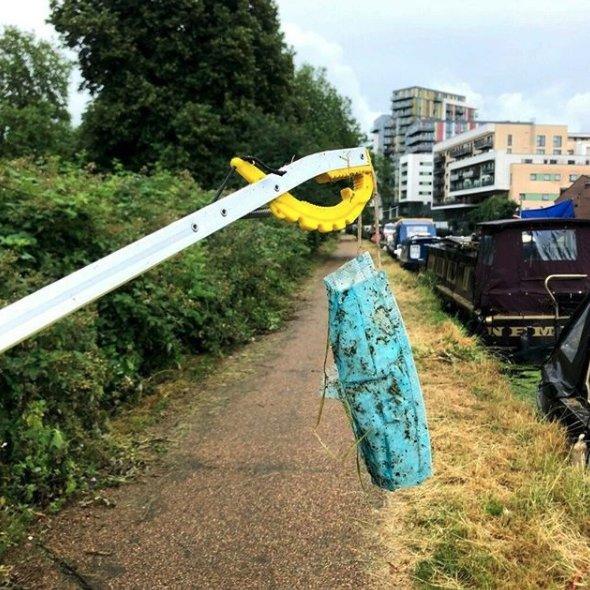
Surfers Against Sewage litter pickers are finding items like face masks in rivers and the ocean
Most single use personal protective equipment (PPE) - such as gloves or face masks - are made from a variety of plastics.
These types of plastic masks could then take up to 450 years to fully break down if they end up in the sea, according to Waste Free Oceans.
Even when thrown away correctly, it is claimed most PPE cannot be recycled because it's seen as medical waste.
So it ends up either in landfill or being sent to an incinerator, which burns the waste and can release toxic smoke.
'New wave of plastic pollution'
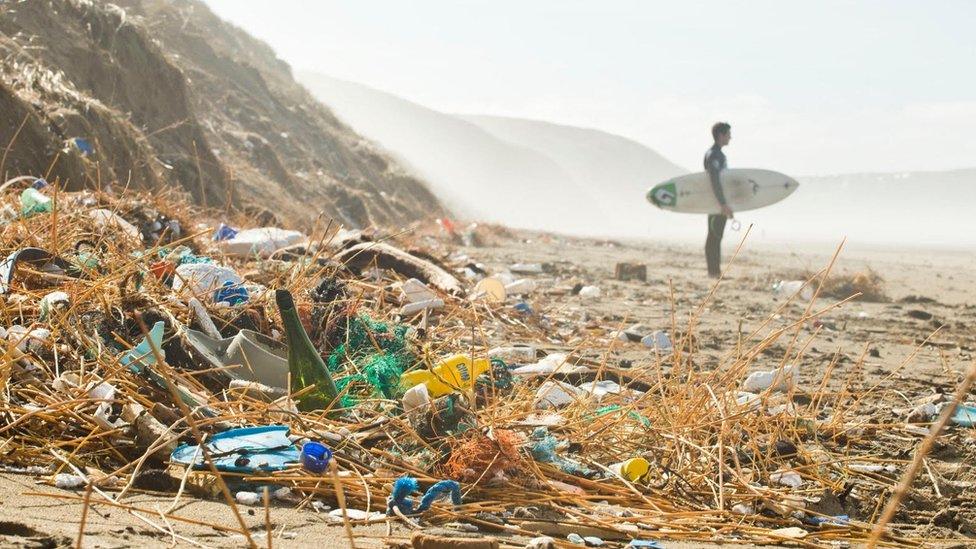
A new campaign against plastic pollution will launch in September
From September, Surfers Against Sewage plans to name and shame on social media individual companies whose waste its members most regularly find.
Jack Middleton from the charity, which is based in Cornwall, said: "Since lockdown has started to be lifted we've witnessed a new wave of plastic pollution littering our beaches in the form of disposable masks and gloves.
"While the PPE has helped to save lives over the past few months, we now need to consider how we dispose of it properly to prevent it from flowing into our rivers and oceans and destroying our beaches.
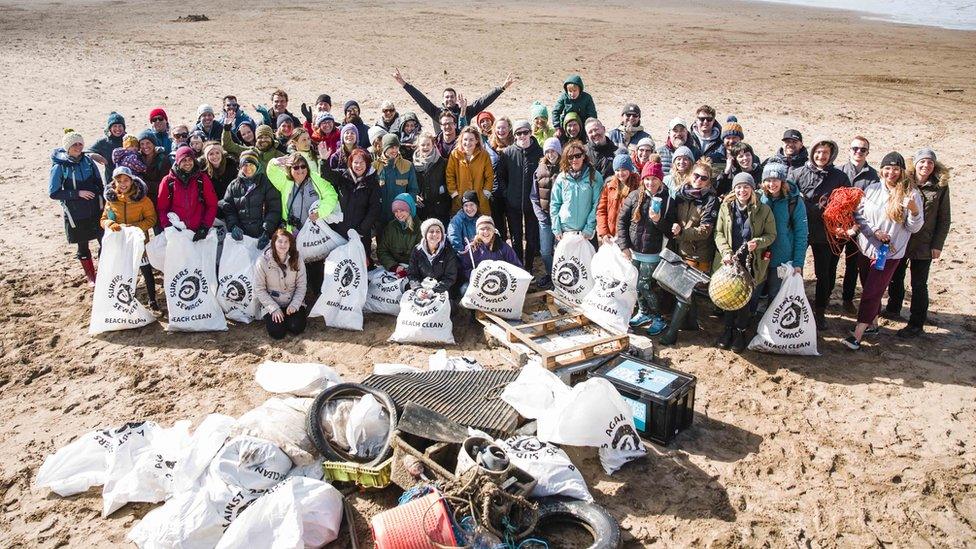
Surfers Against Sewage hold regular beach clean-ups across the UK
"We're used to seeing plastic bottles and bags when we're surfing but this new type of plastic pollution is something that no-one could have foreseen."
Mr Middleton and other conservationists are encouraging people to use reusable face masks to help cut down on tens of thousands of tonnes of extra plastic waste.
Face masks and gloves litter increasing
Charlotte England takes part in mass clean-ups in Bristol along the River Avon.
She says she has noticed increasing amounts of PPE, particularly face masks, among the litter she cleans up.
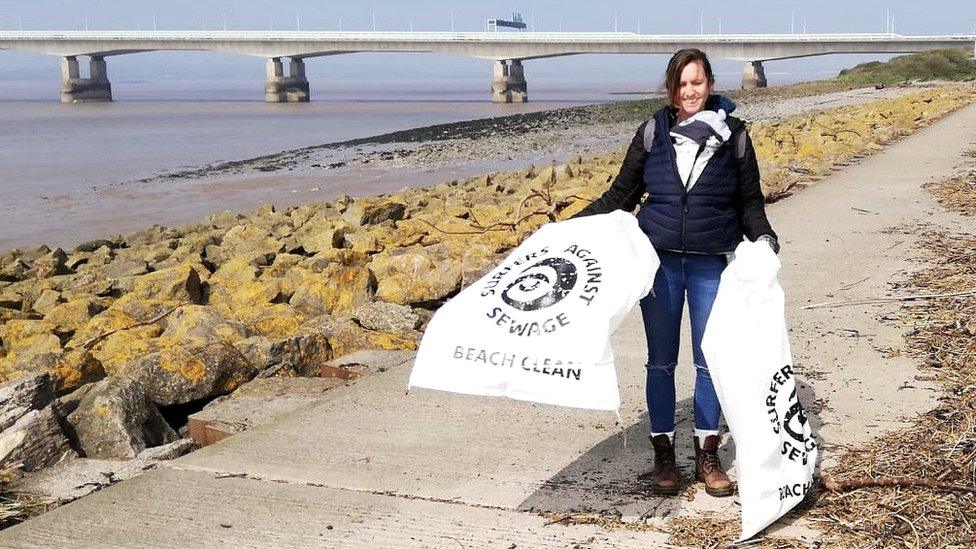
Charlotte England takes part in litter picks like this one close to the Severn Crossing near Bristol
"You see the masks everywhere, on parks and in the streets," she said.
"This is a big problem because before lockdown these items weren't ever really in circulation among the general public, they were limited to the medical industry.
"I think what's needed is clear guidance from the government on the promotion of reusable masks.
"They have said they are safe to use but I don't think the fact that they are an [environmentally friendly] alternative to the single-use masks has been widely communicated."
- Published30 June 2020

- Published28 November 2019
